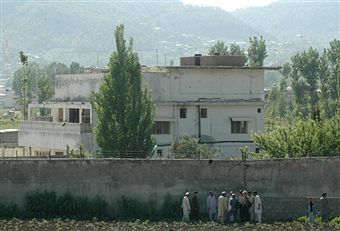 “It was decided that any effort to work with the Pakistanis could jeopardise the
mission. They might alert the targets.” There have been few blunter, nor more high-profile, condemnations of Pakistan’s intelligence operation than that made by Leon Panetta, the CIA chief, in
interview with Time magazine today. And there are plenty of
other noteworthy nuggets in the article as well: among them, Panetta’s claim that the US has seized an “impressive amount” of raw intel from Bin Laden’s compound. And how about this:
“Intelligence reporting suggests that one of bin Laden’s wives who survived the attack has said the family had been living at the compound since 2005, a source tells TIME.”
“It was decided that any effort to work with the Pakistanis could jeopardise the
mission. They might alert the targets.” There have been few blunter, nor more high-profile, condemnations of Pakistan’s intelligence operation than that made by Leon Panetta, the CIA chief, in
interview with Time magazine today. And there are plenty of
other noteworthy nuggets in the article as well: among them, Panetta’s claim that the US has seized an “impressive amount” of raw intel from Bin Laden’s compound. And how about this:
“Intelligence reporting suggests that one of bin Laden’s wives who survived the attack has said the family had been living at the compound since 2005, a source tells TIME.”
David Cameron, it must be said, struck a more conciliatory tone in his Commons statement earlier. Although he did point out that Bin Laden must have enjoyed an extensive “support network” in Pakistan — and that questions must be asked about that, and answered — there was no repeat of the swashbuckling remarks of last summer. Instead, the PM emphasised that cooperation will be “important in the days ahead,” and that, “it is in Britain’s national interest to recognise that we share the same struggle against terrorism.”
The diplomacy of the situation is, of course, complicated by Pakistan’s fractured state and military hierarchy. Although, returning to that Time article, I’m rather struck by the words of John McLaughlin, former deputy at the CIA. “They now should feel under some great pressure to be cooperative with us on the remaining issues,” he says. “It’s called leverage.”






Comments